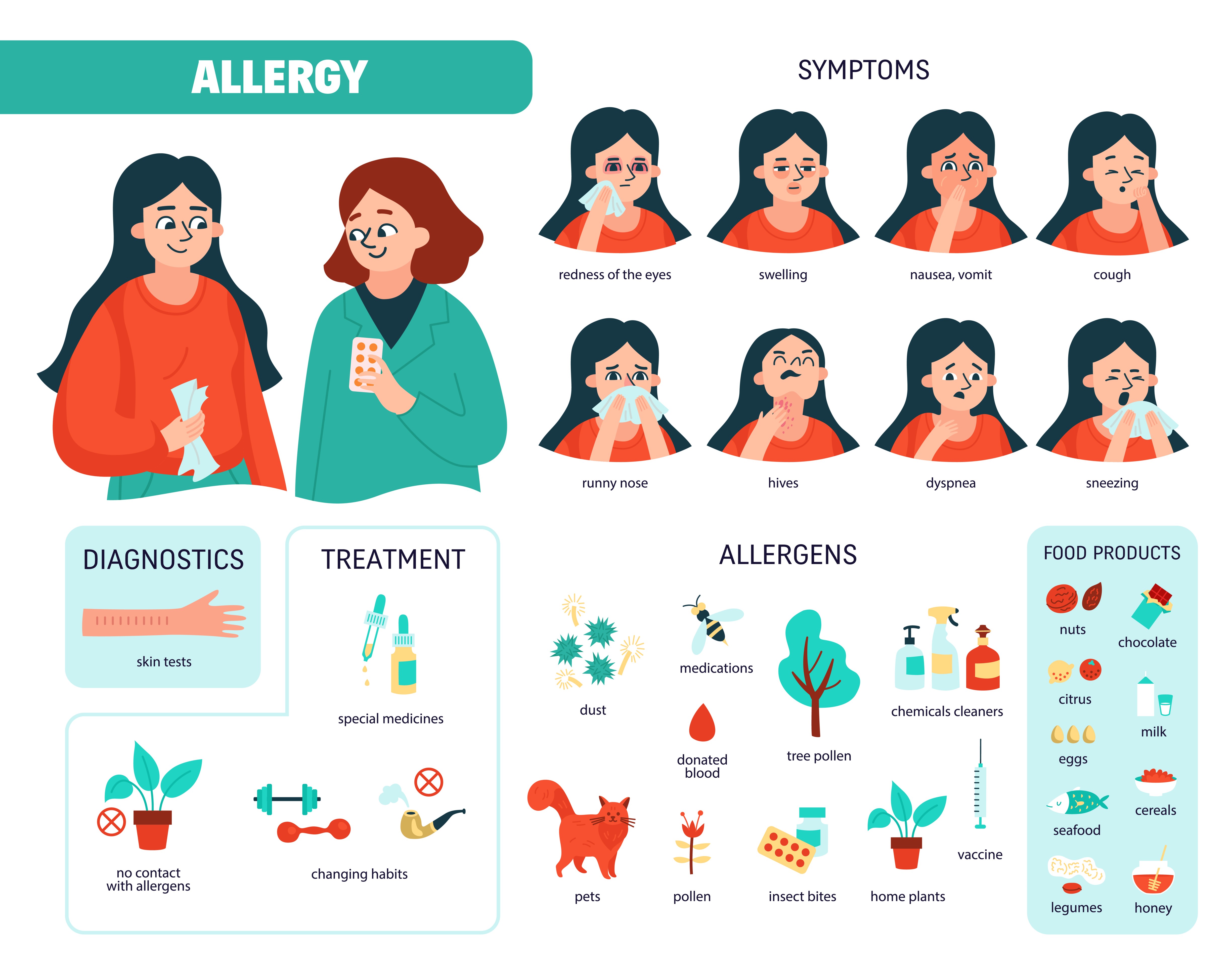
Types of Allergic Rhinitis: Seasonal vs. Perennial
Introduction: Allergic rhinitis comes in different forms, each with its own triggers and characteristics. Let’s delve into the two main types: seasonal and perennial.
1. Seasonal Allergic Rhinitis: Seasonal allergic rhinitis, also known as hay fever, occurs during specific times of the year when allergens like pollen are in abundance. It’s most common in the spring and fall when trees, grasses, and weeds release pollen into the air.
2. Symptoms of Seasonal Allergic Rhinitis: Symptoms of seasonal allergic rhinitis may include sneezing, runny or stuffy nose, itching in the nose, throat, or eyes, and watery eyes. These symptoms tend to flare up during specific seasons and may vary depending on the allergens present.
3. Perennial Allergic Rhinitis: Perennial allergic rhinitis occurs year-round and is typically triggered by indoor allergens such as dust mites, pet dander, mold, or cockroach droppings. Unlike seasonal allergic rhinitis, perennial allergic rhinitis can affect individuals at any time of the year.
4. Symptoms of Perennial Allergic Rhinitis: Symptoms of perennial allergic rhinitis are similar to those of seasonal allergic rhinitis and may include sneezing, nasal congestion, itching, and a runny nose. However, these symptoms persist throughout the year due to constant exposure to indoor allergens.
5. Management and Treatment: Treatment for both types of allergic rhinitis may include avoiding allergens when possible, using over-the-counter or prescription medications to relieve symptoms, and considering allergy shots (immunotherapy) for long-term management.
Conclusion: Understanding the differences between seasonal and perennial allergic rhinitis can help individuals better manage their symptoms and improve their quality of life. By identifying triggers and implementing appropriate treatment strategies, it’s possible to find relief from allergic rhinitis symptoms.
To seek medical advice, always consult a Doctor. Here are our recommended experts. Click here
To read more on Respiratory disease . Click Here


